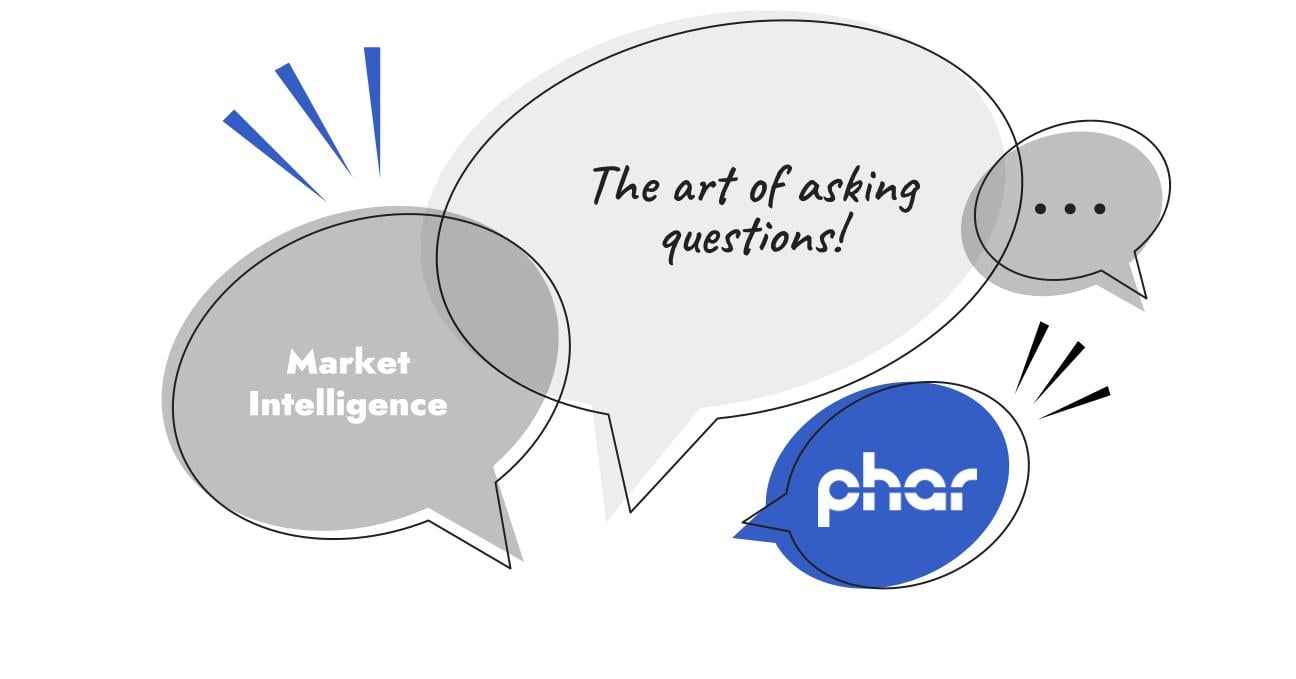For those of you who know me, you know how I LOVE human connections and how curious I can be to learn more about what makes a person passionate professionally and personally.
I won't be revealing a secret if I tell you that human intelligence is my thing! A little reminder, human intelligence allows us to give a little more depth to electronic intelligence. It allows us to bring nuances and to understand what is not written. As my colleague Guillaume explained so well in another post, it is complementary to electronic monitoring and can be done with a multitude of people. I like to remember that behind every article, product, company... there are PEOPLE!
For me, not asking questions is a missed opportunity. The art of asking questions helps to stimulate learning and the exchange of ideas, and fuels innovation. The art of questioning, in a business intelligence context, can even mitigate many risks by revealing certain flaws and unexpected dangers.
Over the years, I have developed a multitude of little tricks to quickly "connect" during my interviews and I would like to share 4 of them with you.
1. Have a clear strategic intent before conducting an interview
Defining your strategic intent will help you formulate effective questions and stay focused throughout the exchange.
For example, if your intent is to understand how to develop a specific market, direct your questions to the ecosystem of that market (potential customers, players in the market, structure of the distribution network, etc.).
2. Do preliminary research and have an interview guide
An interview cannot be improvised. It is important to take the time to dig for relevant information about the person you have chosen to interview.
For example, before an interview, I take the time to go through the person's LinkedIn profile.
Also, if you're talking to an expert in a specific field, don't hesitate to read any articles they've published.
Before each interview, a good practice is to always create a guide. This guide serves as a framework so that you don't lose sight of the interview's progress and return to certain elements discovered on the person's linkedIn profile or published articles.
3. Be authentic
Remember, people love to talk about themselves. Why? Talking about oneself triggers the same feeling of pleasure in the brain as food or money. Neuroscientists at Harvard University have found the reason: the brain feels such satisfaction when people reveal themselves in conversation that they can't help but share their thoughts1.
Business intelligence is effective in the long run, so being authentic in your approach will certainly help you build a relationship that will allow you to reach out to that person again when needed.
Don't be afraid to share some of the information you've uncovered through your e-business intelligence. This creates a win-win relationship and the next time you solicit this person, they will be eager to open up to you since they will see a mutual benefit.
4. Respect the time
We all have a very busy schedule. When someone gives us a moment of their time, it is important to respect it.
At the beginning of the interview, ask the person if the time you had planned is still appropriate.
For example, I always have a stopwatch with me when I do an interview. It allows me, 10 minutes before the end, to mention that the last element of our interview will be about a key element.
Here you will understand the importance of points 1 and 2 because with a clear intention and an interview guide, it is easy to navigate through time and get the information that really matters. There is nothing to stop you from asking for a second interview at another time to continue your conversation. How many times have people been surprised by this little detail and thanked me for it!
In conclusion, conducting an interview cannot be improvised. It is an exercise that must be prepared in advance in order to show respect to the person who is taking his or her time to speak with you. This person will also appreciate it if you send him or her a small note thanking them for their time following your interview. You can take this opportunity to ask if you can contact them in the future with other questions and why not ask for the contact information of another person in their network.
We are in a world of human connections!
1 https://www.revuegestion.ca/maitriser-lart-de-la-question-en-trois-etapes

August 31, 2021
